Other Awardees and Fellows
Recent Awardees:
Heinz Maier-Leibnitz Prize
Professor Anna Schenk, Colloidal Systems
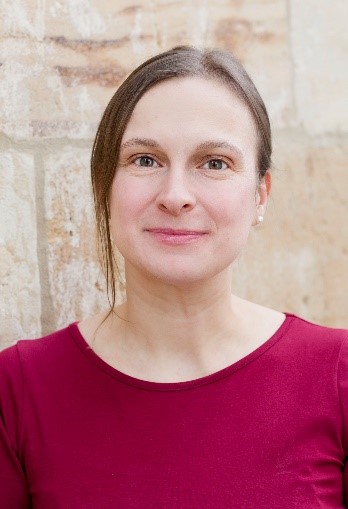
The research activities in my lab are focused on the development of bio-inspired synthetic routes toward functional materials, in particular transition metal oxides. The formation of complex structures is achieved via controlled mineral deposition directed by organic additives and templates in bulk or in confined reaction environments. By combining a range of imaging and scattering techniques, we perform multiscale structural analyses of biogenic and bio-inspired hybrid materials with a particular focus on the nature of nanoscale internal interfaces. In view of potential applications, the synthetically generated nano-, meso-, and microstructures are correlated with the electrocatalytic performance of the materials.
Research interests: crystallization and assembly, biomineralization, nanostructured functional materials, small- and wide-angle X-ray scattering, electrocatalysis
ERC Synergy Grant
- Professor Birte Höcker, Biochemistry III ProteindesignHide
-
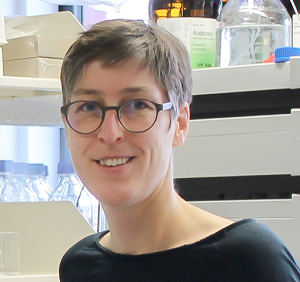
Professor Birte Höcker, Biochemistry III Proteindesign
My lab works on the analysis and design of proteins and their functions. The work is grounded in the belief that a better understanding of the physical constraints governing proteins and their chemical functions will ultimately allow us to construct custom-made proteins for cellular as well as synthetic processes. In summary, my goal is to achieve a complete understanding of protein folding and small molecule recognition, to be able to apply this to further advance the rational design of proteins.
Research interests: protein engineering and design, protein evolution, protein folding, structure-function relationships, synthetic biology
Research Group Linkage Programme of the Alexander von Humboldt Foundation
- Professor Stephen Akinola Odebunmi, Nigeria & Professor Karin BirknerHide
-
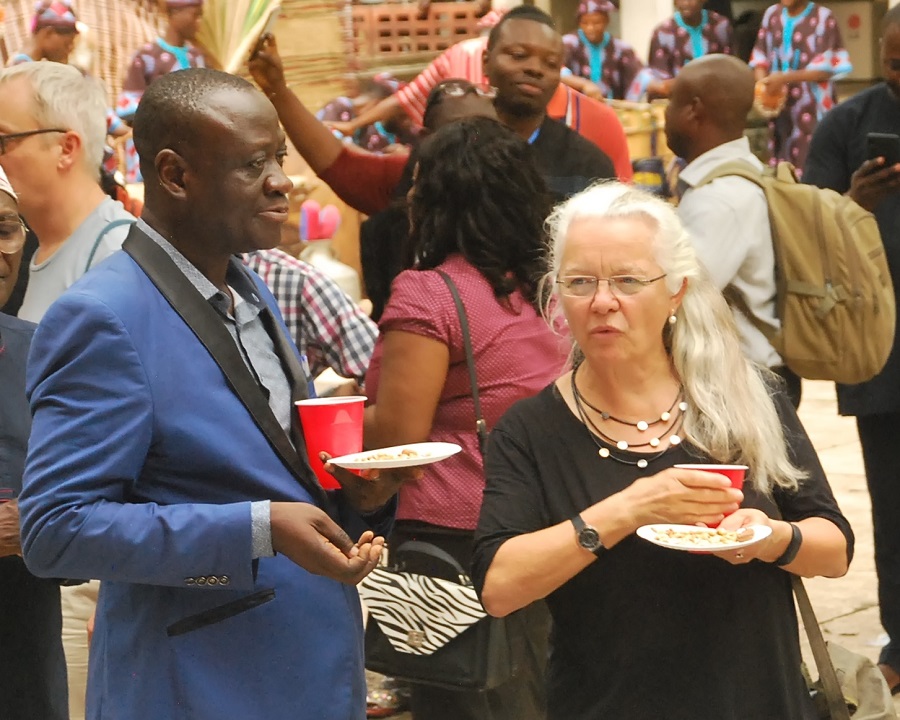
Professor Stephen Akinola Odebunmi, University of Ibadan, Nigeria
Professor Karin Birkner, German Linguistics, University of Bayreuth
Project title: Interactive Dynamics and Contexts of Nigerian and German Doctor-Patient Encounters
The project investigates doctor-patient encounters in German and Nigerian outpatient clinics and analyses the communicative practices of doctors and patients in biomedical clinical encounters, stemming from two prominently different socio-cultural and economic contexts. Thereby, the project aims to show how contextual features of doctor-patient encounters in Germany and Nigeria are reflected, constructed and consolidated in the sequential unfolding of the medical consultations.
In a first step, the findings of German and Nigerian doctor-patient encounters, which the participating researchers have gathered in the past, will be compared by focusing on four central activities in doctor-patient encounters: (i) problem presentation, (ii) medical history-taking, (iii) diagnosis, and (iv) treatment discussions. In a second step, communalities and differences will be related to the respective contexts of the medical consultations and how these contexts surface as distinctive local practices of biomedicine, different socio-cultural common grounds, and medical ideologies.
As an overarching objective, the project will develop a methodological framework that combines a microanalytic conversation analysis-approach and a (more) macroanalytic discourse-analysis approach, hence benefitting from their respective strengths. The project will explain the differences between German and Nigerian doctor-patient encounters – investigating if they can be explained by interaction-inherent dynamics or through references to cultural, ideological and socio-economic backgrounds.
Prof. Stephen Akinola Odebunmi is Professor of Pragmatics and Discourse Analysis at the University of Ibadan, Nigeria. His areas of expertise comprise General Pragmatics, Medical Pragmatics, Literary Pragmatics, Pragmatic stylistics, Semantics, and Discourse Analysis. His PhD was on “Pragmatic Features of English Usage Amongst Medical Practitioners and Patients in Southwestern Nigerian Hospitals”, supervised by Professor Adewale Adegbite from Obafemi Awolowo University, Ile-Ife. Amongst others, he is the founder of the Nigerian Pragmatics Association (NPrA) and its current president. In 2010, he was a Fellow of the Alexander von Humboldt Foundation at the University of Freiburg, hosted by Prof. Peter Auer.
Prof. Dr. Karin Birkner holds the chair of German Linguistics at the University of Bayreuth. Her areas of expertise are Applied Linguistics, Conversation Analysis, Medical Communication, Intercultural Communication and Grammar of Spoken Language. She is a vice president of the German Association of Applied Linguistics “Gal e.V.” The collaboration with Prof. Odebunmi dates back to 2010 when he first came to Germany during his stay as a Humboldt-fellow. In 2019, she was invited as a plenary speaker to the Humboldt Kolleg in Linguistics and Humanistic Medicine “Healing tongues. The therapeutic potential of negotiative communication in patient-centered consultative styles”.
Awardees and Fellows of the Alexander von Humboldt Foundation at the University of Bayreuth
- Professor Anar Akhmedov, USAHide
-
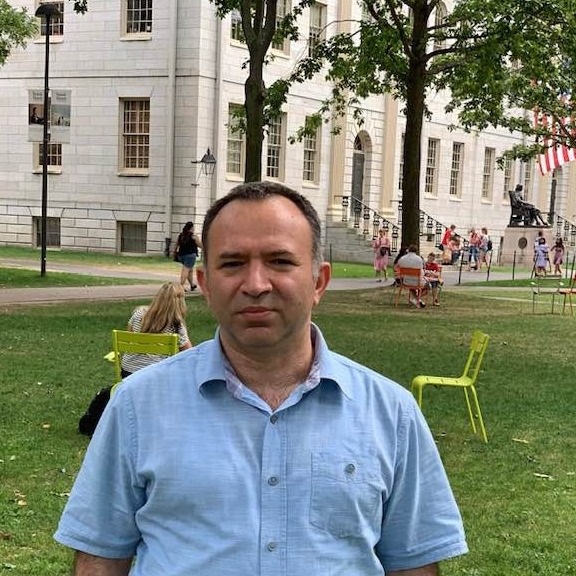
Professor Anar Akhmedov
Professor of Mathematics, University of Minnesota, USAProject Title: The Topology of Complex Surfaces and Symplectic 4-Manifolds
For the purpose of this project, I will collaborate with Professor Fabrizio Catanese with an aim of further understanding of smooth and symplectic structures on 4-manifolds and constructing Lefschetz fibrations on symplectic 4-manifolds using the positive relations in the mapping class group. These investigations will hopefully improve our understanding of smooth and symplectic 4-manifolds, and lead to the creation of new construction techniques. The project will also study the geography of complex surfaces and symplectic 4-manifolds. This project may lead to new results on spin and non-spin symplectic/ complex geography and provide interesting constructions of symplectic 4-manifolds and complex surfaces on and near Bogomolov-Miyaoka-Yau line.
Disciplines: Symplectic Topology, Algebraic Geometry
Host: Professor Fabrizio Catanese, Mathematics VIII
- Dr Jinke Bao, USAHide
-
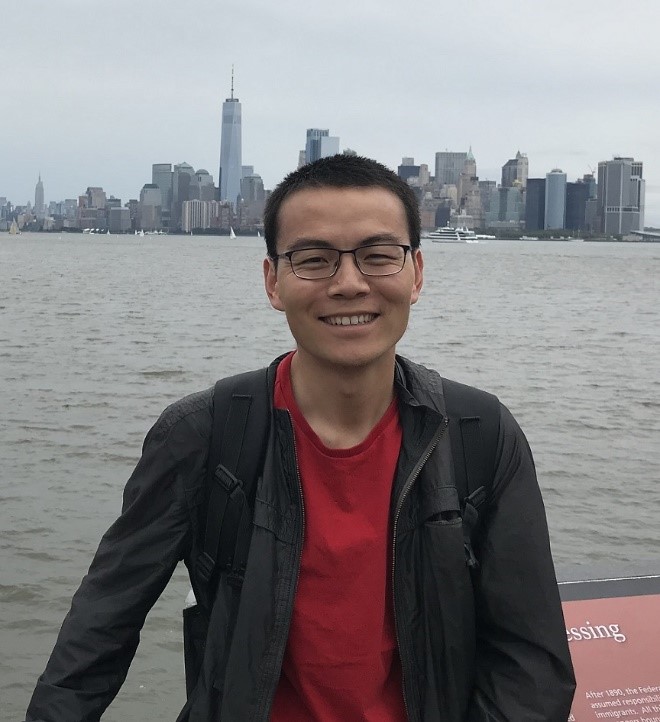
Dr Jinke Bao
Argonne National Laboratory, Northwestern University, Evanston, USAProject Title: Investigations of interplay between lattice and magnetic/charge density wave order in low dimensional quantum materials by X-ray scattering
Quantum materials, a rapidly growing research area, exhibit macroscopic quantum phenomena such as charge/spin density wave, superconductivity and topological protected states. Materials with reduced dimensionality create a suitable crystal structure framework to host exotic states such high-Tc superconductivity due to quantum confinement of electrons. Charge/magnetic density wave order is a collective electronic phenomenon with spin/charge of electrons forming additional periodicity in the translation-symmetric lattice. Modulated crystal structure with periodic lattice distortion in those materials can be formed due to the coupling between charge/spin and lattice. This project aims at investigating those tiny lattice distortions in low dimensional quantum materials by X-ray scattering using synchrotron radiation source. The research will help understand the nature and mechanism of those orders.
Host: Prof. Dr. Sander van Smaalen, Crystallography
Research Interest: Charge Density Wave, Spin Density Wave, Superconductivity, Modulated Crystal Structure
- Professor Tatas Hardo Panintingjati Brotosudarmo, IndonesiaHide
-
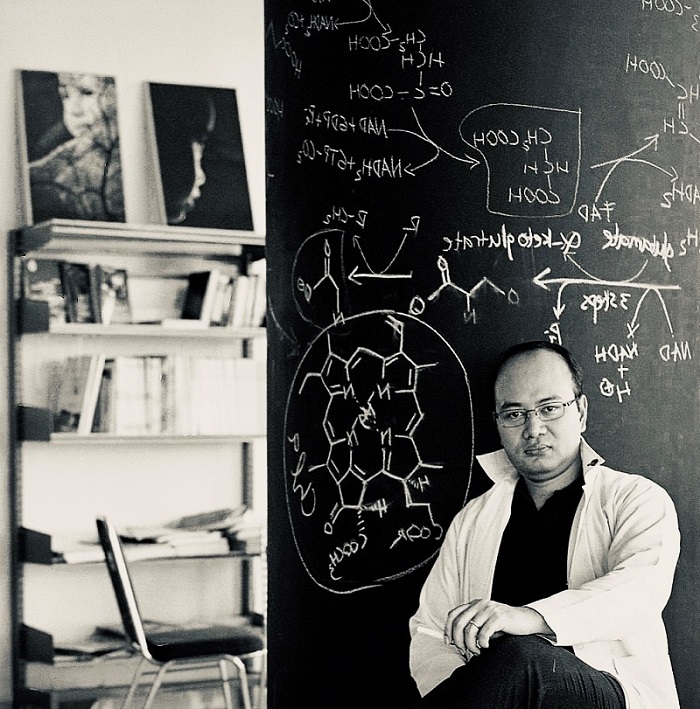
Professor Tatas Hardo Panintingjati Brotosudarmo
Principal Investigator, Ma Chung Research Center for Photosynthetic Pigments (MRCPP) and Chemistry Study Program, Universitas Ma Chung, Malang, IndonesiaProject Title: Characterization of the fucoxanthin-based photosynthetic apparatus by single molecule spectroscopy
Here at Bayreuth, Dr. Brotosudarmo will learn to employ a single molecule fluorescence spectroscopy (SMS) to examine the structure-function relationship of photosynthetic light-harvesting complexes, with focus on fucoxanthin complexes. Indonesia represents the world’s biodiversity in marine species. Based on reports, Indonesia has about 134 species of eukaryotic brown algae. These species utilize the Sun energy in a unique way by having carotenoid, called fucoxanthin, as a major light absorbance material in their light harvesting apparatus. In this project, Dr. Brotosudarmo will take closer look at a molecular scale to observe and understand how Sunlight energy absorption and energy transfer occurs in this unique system. Prior to research at Bayreuth, his biochemistry works mainly includes characterization of natural product compounds, especially carotenoids and other pigments, by Mass Spectrometry. SMS is currently a state-of-the-art method in imaging spectroscopy for observation of photophysical properties of a molecule. Knowledge of SMS can impact Indonesia to further explore marine biodiversity and its untapped potentials. The competence in SMS is a rare expertise among scientists in Indonesia and will have a strong impact for the continued development of education programs at higher academic institutions in Indonesia.
Disciplines: Biophysical Chemistry, Biochemistry, Spectroscopy, Biophysics
Host: Professor Jürgen Köhler, Spectroscopy of Soft Matter, Experimental Physics IX
- Dr Romar Dela Cruz, PhilippinesHide
-
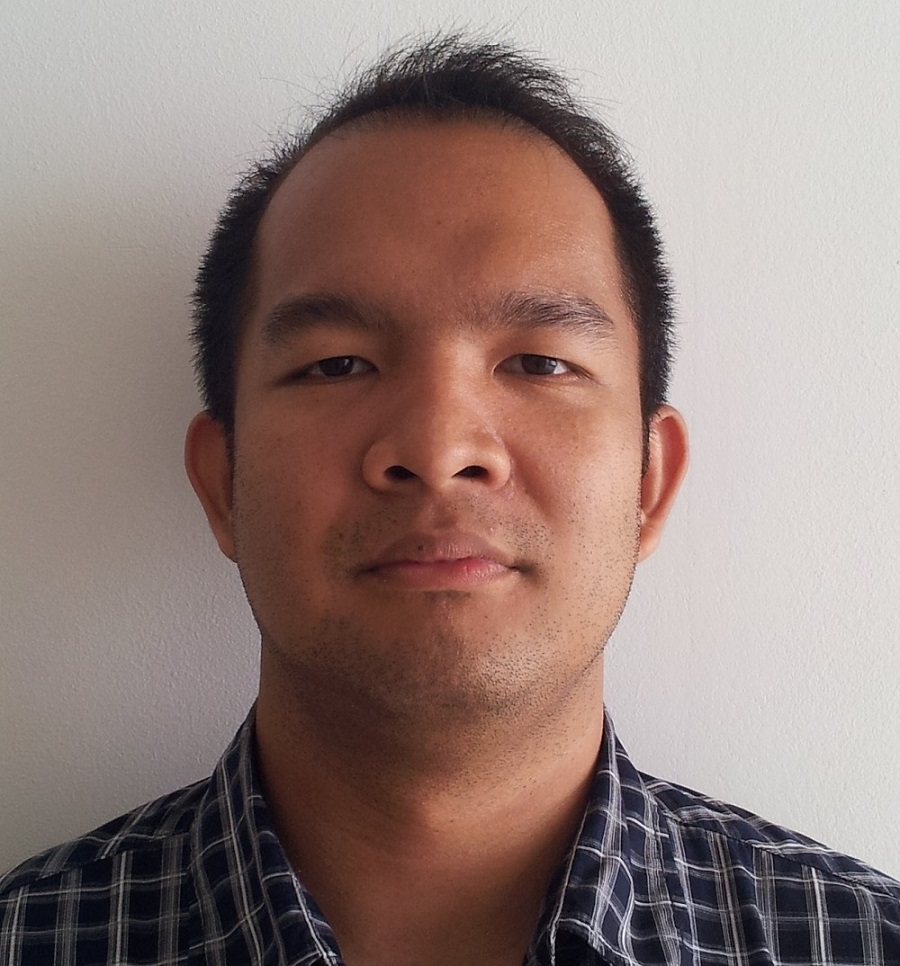
Dr Romar Dela Cruz
Institute of Mathematics, University of the Philippines Diliman, PhilippinesProject Title: On error-correcting codes from graphs
Error-correcting codes were introduced to enable reliable transmission of data across noisy channels. These codes are also used to solve problems in other areas like combinatorics and cryptography. An important class of such codes are vector spaces over finite fields called linear codes. These codes are extensively studied because of their nice properties both from the theoretical and practical perspectives. The project aims to study the properties of linear codes obtained from adjacency matrices of graphs.
Research Interests: Coding Theory, Cryptography
Host: Professor Alfred Wassermann, Mathematics and Didactics
- Dr. Constant Kpao Sare, BeninHide
-
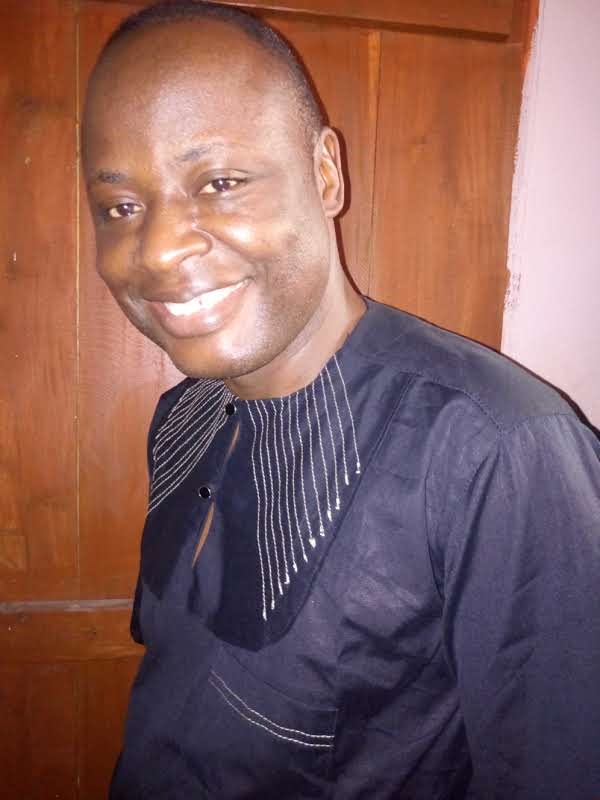
Dr. Constant Kpao Sare
Associate Professor of German literature and culture, University of Abomey-Calavi, BeninMy research focusses on German literature from the 18th century to the present, including postcolonialism in contemporary German literature: Reiseliteratur, Ratgeberliteratur, Forschungs-und Entdeckungsreise, etc. During my upcoming stay at University of Bayreuth, I aim at carrying out key findings in the discourse about ‘African things’ and technics of African things modelling in German-speaking literature (Thing studies). My overall goal is to seek for and document valuable and sustainably useful African things that could be exhibited in museums of Things. In this respect, I will be doing an "Analysis of things" in order to contribute to the postcolonial discussion by exploring the postcolonial potential of African things in German literature, including relevant theories of cultural turn, material turn, postcolonial memory etc.
Disciplines: German Studies, African studies, Thing studies
Host: Professor Gesine Lenore Schiewer, Intercultural German Studies
- Dr Oliver Nyambi, South AfricaHide
-
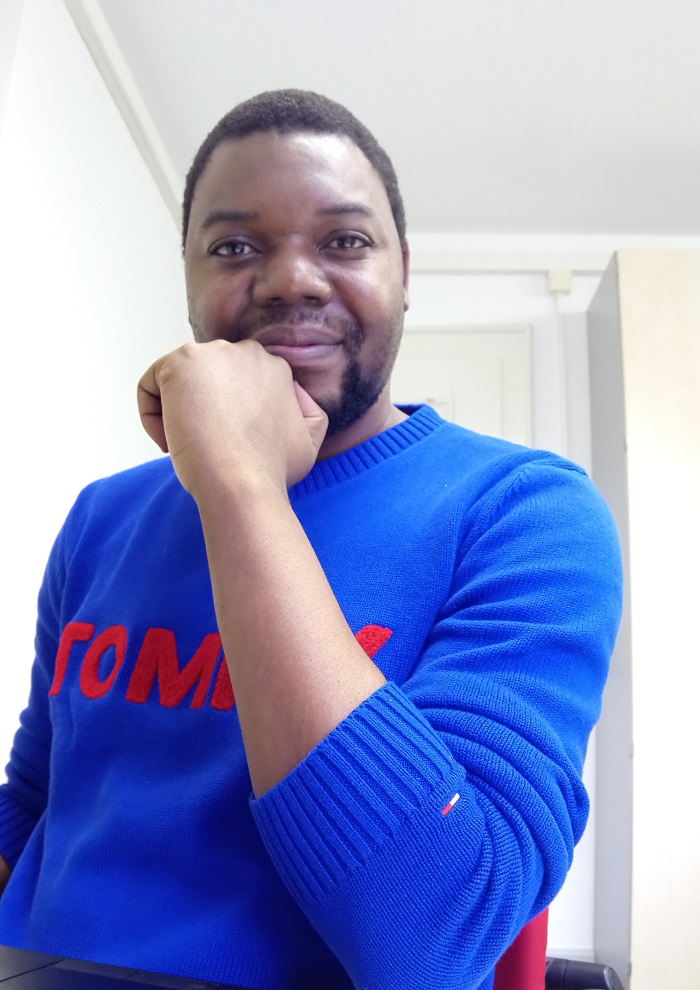
Dr Oliver Nyambi
Department of English, University of the Free State, South AfricaProject title: The crisis of liberation in contemporary Zimbabwe: texts, counter-texts, and contexts in the crisis years (2000 – 2020)
The project focuses on changing conceptions of liberation in crisis literatures and cultures of crisis in contemporary Zimbabwe. Situated in the context of Zimbabwe's twenty-year-old economic and political implosion, the project explores literary/cultural contestations of the Zimbabwean government’s grand narrative of liberation. Under Robert Mugabe and (as of 2017) Emmerson Mnangagwa, post-2000 Zimbabwe was/is marked by heightened hegemonic attempts to dominate what is (or should be) entailed by liberation now. In a context in which the expressive space is legally constrained and panoptically surveilled to curve space for the state’s neo-nationalist and essentialist notions of patriotic liberation, imaginative literature has emerged alongside other modes of cultural texts and performances as a critical space for a renewed discourse on (re)thinking old and new liberations. Informed by postcolonial theories that center the politics of local agency, the project reads literatures and other cultural products of the Zimbabwean crisis as important alternative sites of national memory, which are invaluable to a fuller understanding of shifting and contested (re)visions of the concept of liberation during Zimbabwe’s crisis years. (Recent related publication: O. Nyambi, Life-Writing from the Margins in Zimbabwe: Versions and Subversions of Crisis, Routledge Taylor & Francis, London & New York, 2019).
Research interests: Zimbabwe and the Zimbabwean crisis (2000 - ), Crisis literatures in Africa, Literature and politics, Critical Liberation Studies, Critical Discourse Analysis, Life-writing and African political identities
Host: Professor Susan Arndt, English Studies and Anglophone Literatures
- Professor Raz Zarivach, IsraelHide
-
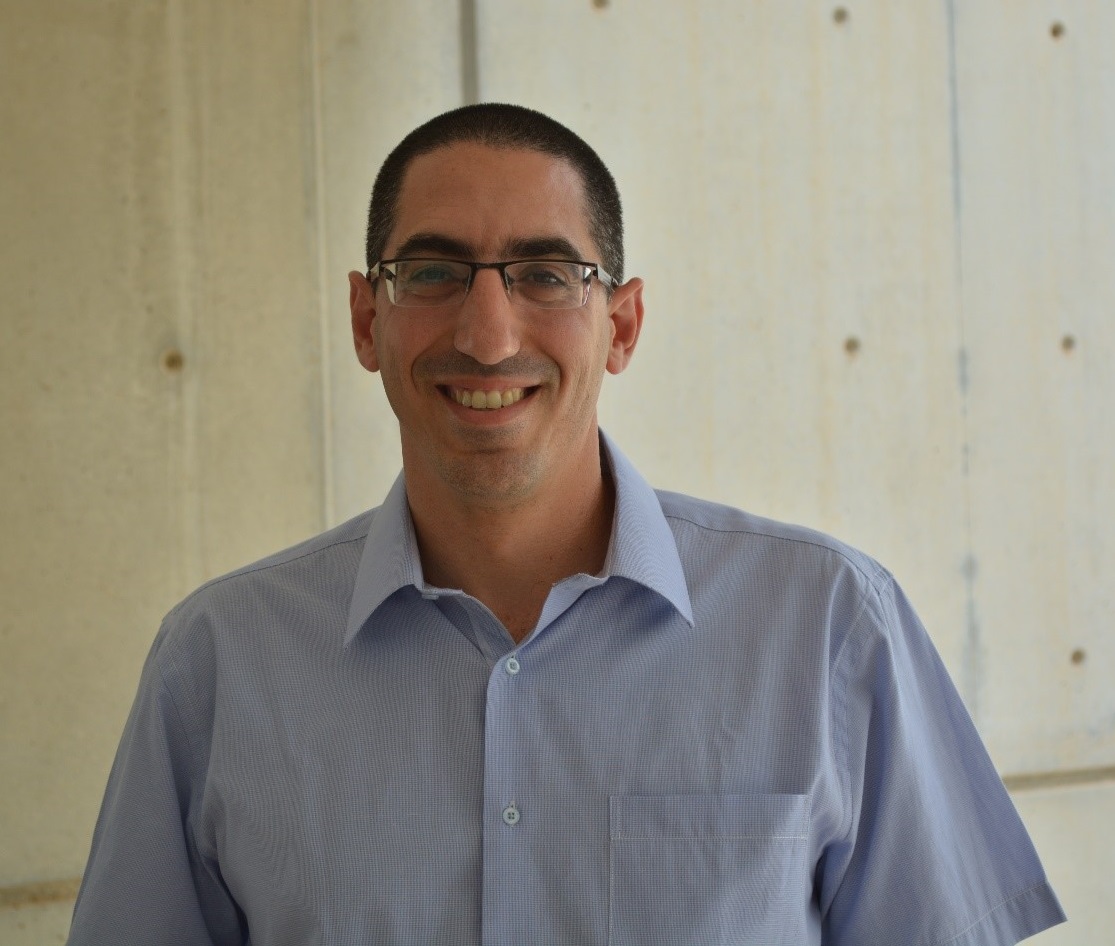
Professor Raz Zarivach
Department of Life Sciences, Ben-Gurion University of the Negev, IsraelThis project aims to advance our structure-function relationship understanding of magnetotactic bacteria related proteins. For that, during the visit, we will purify several magnetotactic bacteria proteins using various protein purification techniques. Once ready, we will test these proteins using a large array of biophysical techniques including Cryo-EM and X-ray crystallography. This project will bring together a combination of advanced microbiology and structural biology expertise to advance the study of various microbiological protein systems. The expected outcomes will allow us to understand the biological systems taking place in these specific bacteria with a deep structural view, which in the long term may allow structure-based modifications of magnetotactic bacteria.
Disciplines: Protein Biochemistry, Structural Biology, Protein Purification, Microbiology
Host: Professor Dirk Schüler, Microbiology
Leibniz Prize 2016
- Prof. Dr. Daniel J. Frost FRS, Bayerisches Geoinstitut (BGI)Hide
-
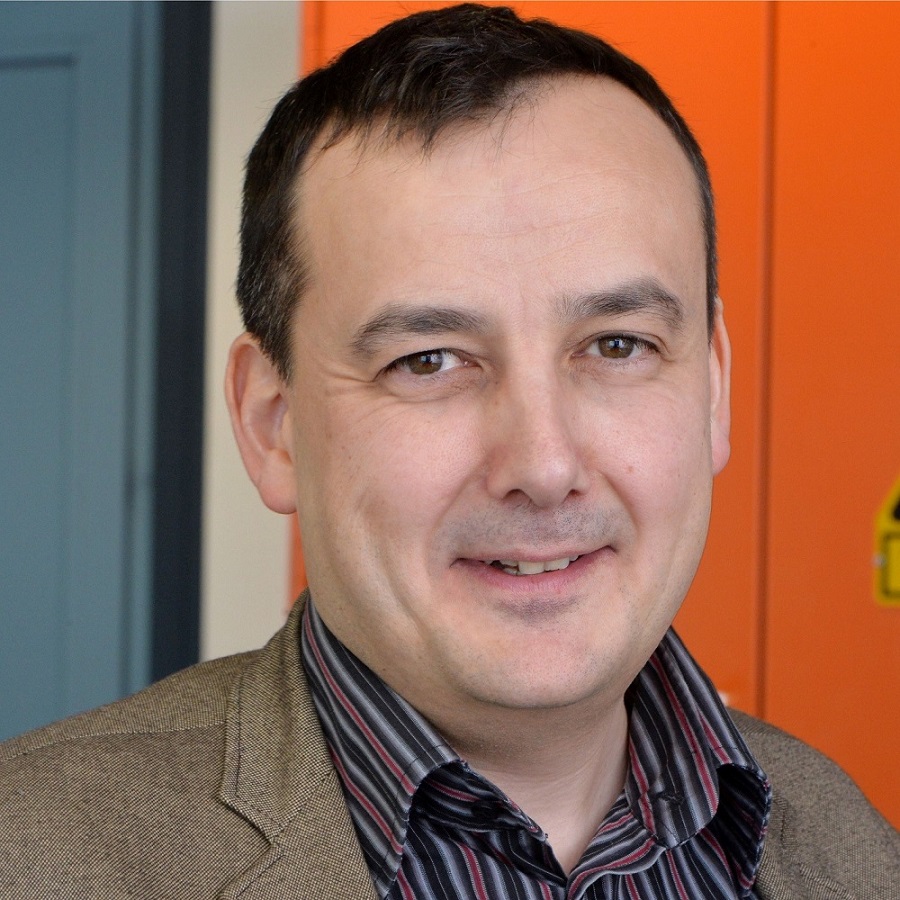
Prof. Dr. Daniel J. Frost FRS
Bayerisches Geoinstitut (BGI), Universität BayreuthDan Frost is an experimental scientist studying the nature of Earth’s deep interior and the formation processes of planets. He employs the results of high pressure and temperature experiments on minerals, rocks and magmas to interpret geochemical and geophysical observations. In particular, he is interested in the cycle of volatile elements inside the Earth and the mechanisms that explain the long term retention of carbon within the interior. By measuring mineral elastic properties at high pressures, he is also interested in placing constraints on the chemical composition of the Earth’s deepest, inaccessible layers by interpreting the velocities of earthquake waves that pass through these regions.
Research interests: Mineral elastic properties and their use in interpreting seismic data on the Earth’s interior, the behaviour of volatile elements in the Earth, the redox state of the mantle, the accretion and differentiation of Earth and the terrestrial planets, the rheology of mantle rocks, phase transformations, thermodynamic properties of minerals, fluids and melts.
Heisenberg Professor for Experimental Biogeochemistry
- Professor Dr Martin Obst, Bayreuth Center of Ecology and Environmental Research (BayCEER)Hide
-
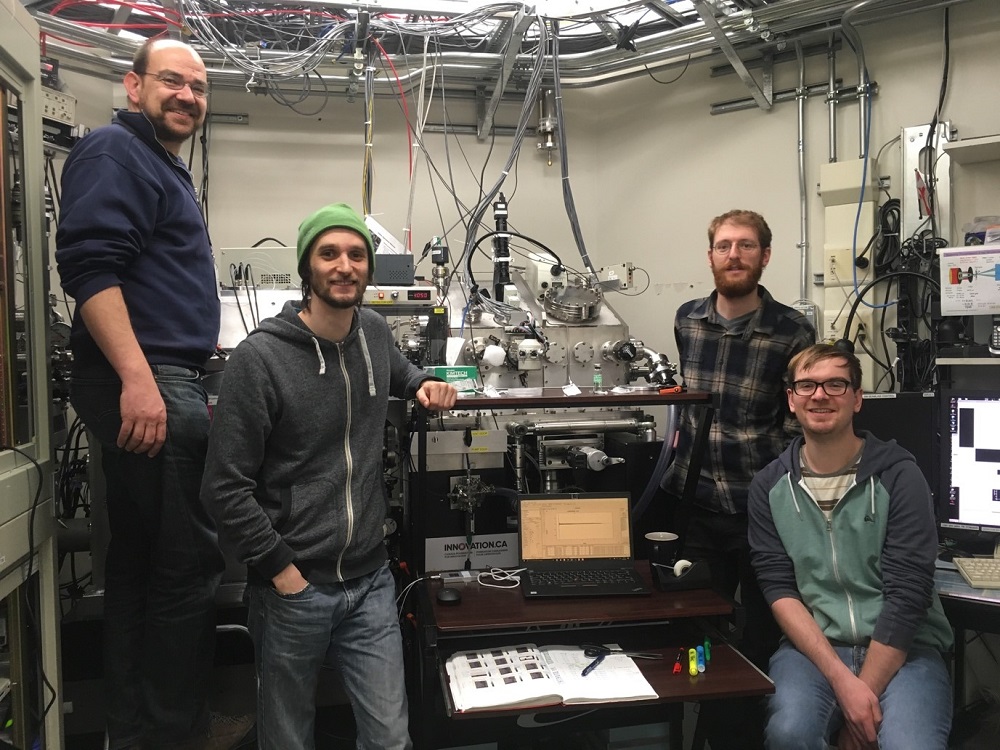
Professor Dr Martin Obst
Bayreuth Center of Ecology and Environmental Research (BayCEER)Project Title: Environmental Redox Processes at the Microscale
The aim of Prof. Obst’s work is the identification and quantification of fundamental environmental processes that occur on the micrometer scale. In the environment, we often observe reduction and oxidation processes that cannot be explained by classical geochemical models. For example, reactions are coupled that - based on their individual chemical requirements - should not occur together. One fundamental aspect that often has not been considered in previous studies, mostly due to limitations in our experimental possibilities, is the spatial heterogeneity of environmental systems.
The development of innovative experimental approaches, in particular in the fields of synchrotron-based X-ray spectromicroscopy and lab-based in-situ approaches such as the coupling of environmentally sensitive fluorescence probes with confocal laser scanning microscopy now became promising tools to study such heterogeneities. In my group, we develop and use these approaches identify and to map structural and chemical sub-micron scale heterogeneities in environmental, redox-active biofilms. Furthermore, we study their influence on biogeochemical reactions, in particular on the cycling of carbon, iron, manganese and sulfur, as well as their effects on related chemical species such as toxic heavy metals. In addition to studying natural biofilms, mainly from mining-related sites in the region Fichtelgebirge, we also use microfluidic model systems will help to gain a fundamental understanding of the underlying processes under controlled laboratory conditions.
Research interests: redox-reactions in environmental biofilms, sediments & soils, the fate of heavy metals, interactions between element cycles (C, Fe, Mn, S)
ERC Advanced Grant
- Professor Dr Tomoo Katsura, Bavarian Research Institute of Experimental Geochemistry and Geophysics (BGI)Hide
-
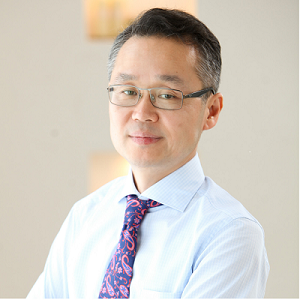
Professor Dr Tomoo Katsura
Bavarian Research Institute of Experimental Geochemistry and Geophysics (BGI), University of BayreuthWe are attempting to obtain better understanding about the structure, dynamics and evolution of the Earth’s deep interior. Since we cannot access the Earth’s interior directly, we obtain such understandings by comparison of physical and chemical properties of geomaterials with geophysical and geochemical observations. Because the Earth’s interior is at high pressures and temperatures, phase relations, element partitioning, equation of state, electrical conductivity and defect mobility are determined by high-pressure-temperature experiments especially using large-volume multi-anvil presses (LVP).
One research topic is determination of chemistry, Si and O self-diffusivity and grain-growth rate of bridgmanite, the major lower-mantle mineral, to interpret abrupt increase in viscosity around 1000-km depth. Another is accurate determination of bridgmanite-forming phase transformations by means of in situ X-ray diffraction to understand the transition between the upper and lower mantles.
Because freedom and quality of such investigations depend on experimental technology, we are developing LVP technologies. For in situ X-ray diffraction, we have constructed an experimental station in the synchrotron facility, DESY. We have raised the pressure and temperature limits from 26 to 52 GPa, and from 2500 to 3000K, respectively. We have increased the furnace cooling rate by 10 times to quench previously-unquenchable melts and investigate their properties.
Research interests: Structure, dynamics and evolution of the Earth and planetary interiors, Physical and chemical properties of Earth and planetary materials, High-pressure physics and chemistry, Development of high-pressure-temperature technology
Marie-Skłodowska-Curie-Actions: Individual Fellowship
- Dr Frederik Van De Putte, BelgiumHide
-
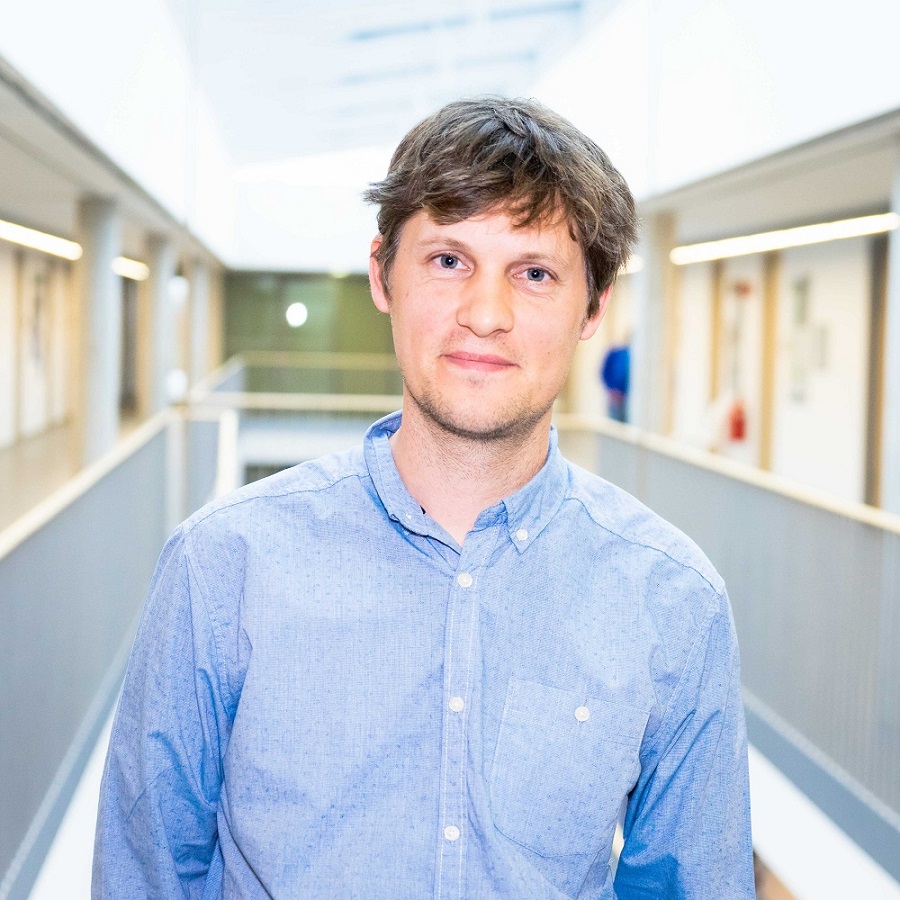
Dr Frederik Van De Putte
Ghent University, BelgiumCollective decisions are pervasive in every aspect of our society. As shown by Brexit and other recent episodes in European national politics, the way we shape our collective decisions can have far-reaching implications. However, even though there is a vast literature on the aggregation and revision of preferences in and by groups, there are no exact mathematical models of the way groups construct and revise a given decision problem – a process I call constructive deliberation. Getting grip on this political “logic of discovery” is a necessary step towards a suitable combination of information technology with various forms of direct democracy.
In this project, I will develop a formal theory of constructive deliberation. Relying on my background in defeasible reasoning and the expertise at the host and secondment institution, I will create mathematical models of individual agents that reason and share information about the decision problem at hand, and show how and when this interaction results in group consensus. This way, the project will complement existing work on collective decision-making, which is in turn necessary for the improvement of democratic processes.Research interests: Logics of social interaction, deontic logic, classical (non-normal) modal logics, multi-agent systems, collective decision-making, deliberative democracy
